-
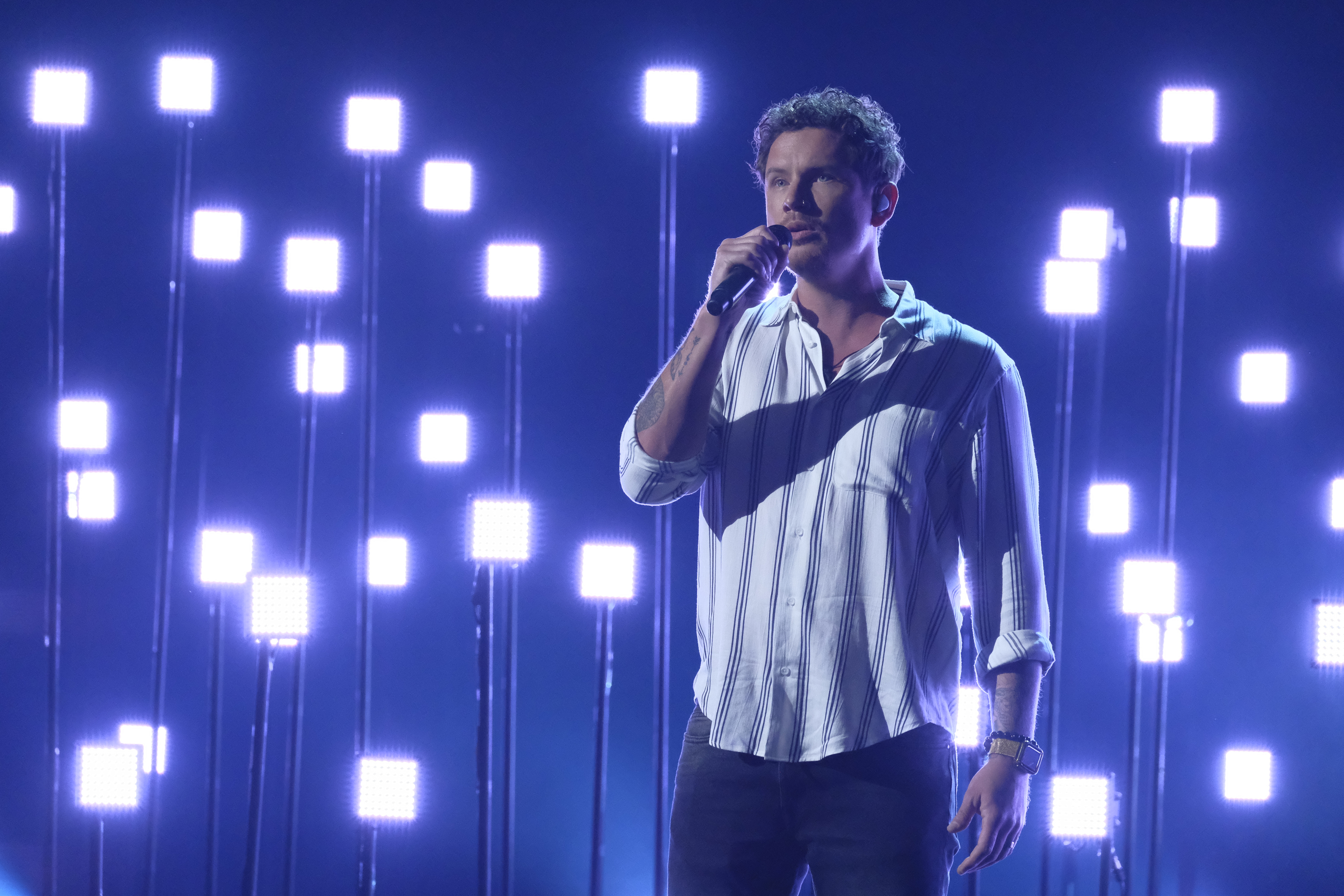
Singer Michael Ketterer performs on performs on “America’s Got Talent” in the semi-finals on Sept. 5, 2018. (Photo by Trae Patton, NBC)
-
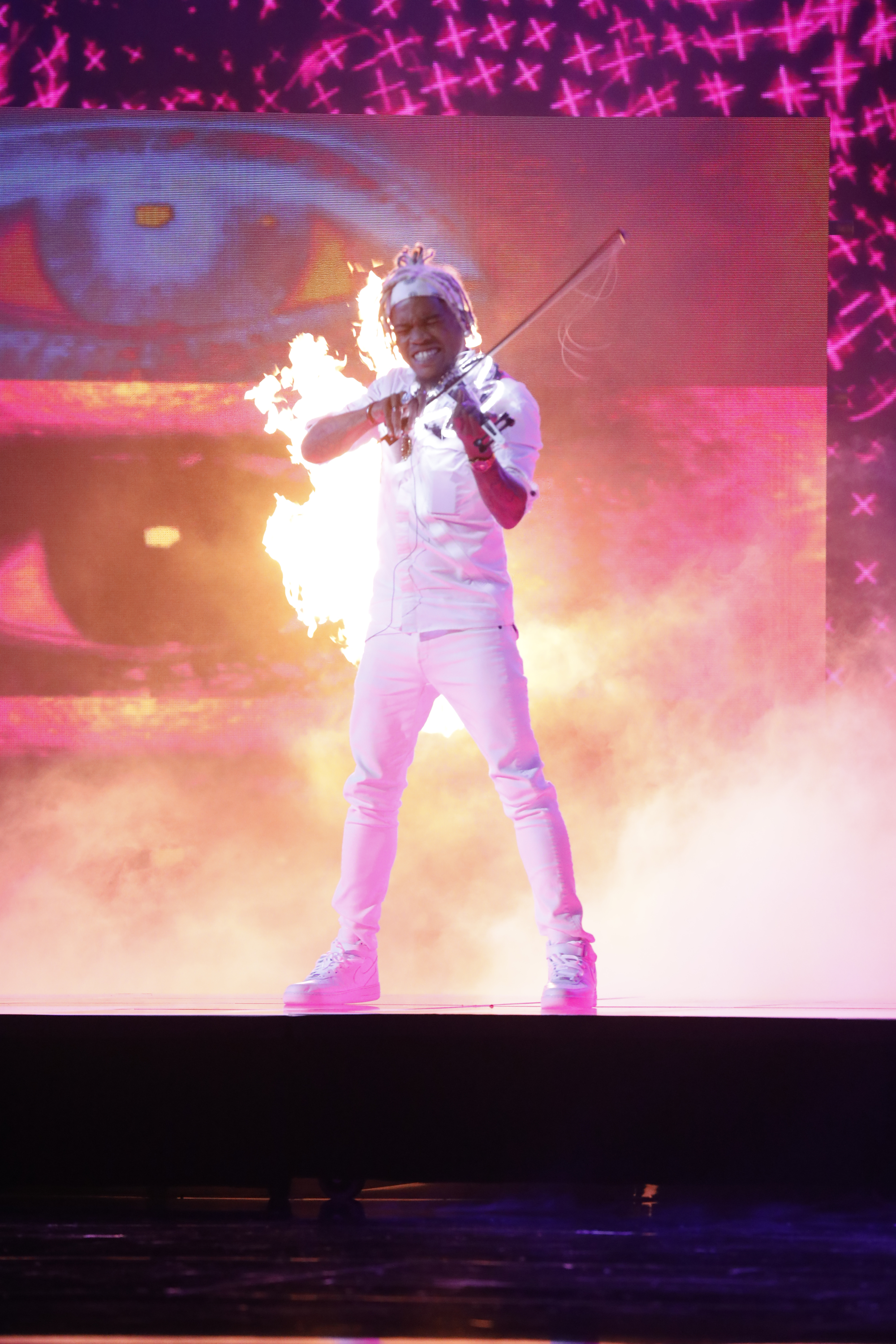
Brian King Joseph performs on “America’s Got Talent” in the semi-finals on Sept. 11, 2018. (Photo by Trae Patton, NBC)
-
SoundThe gallery will resume inseconds
-
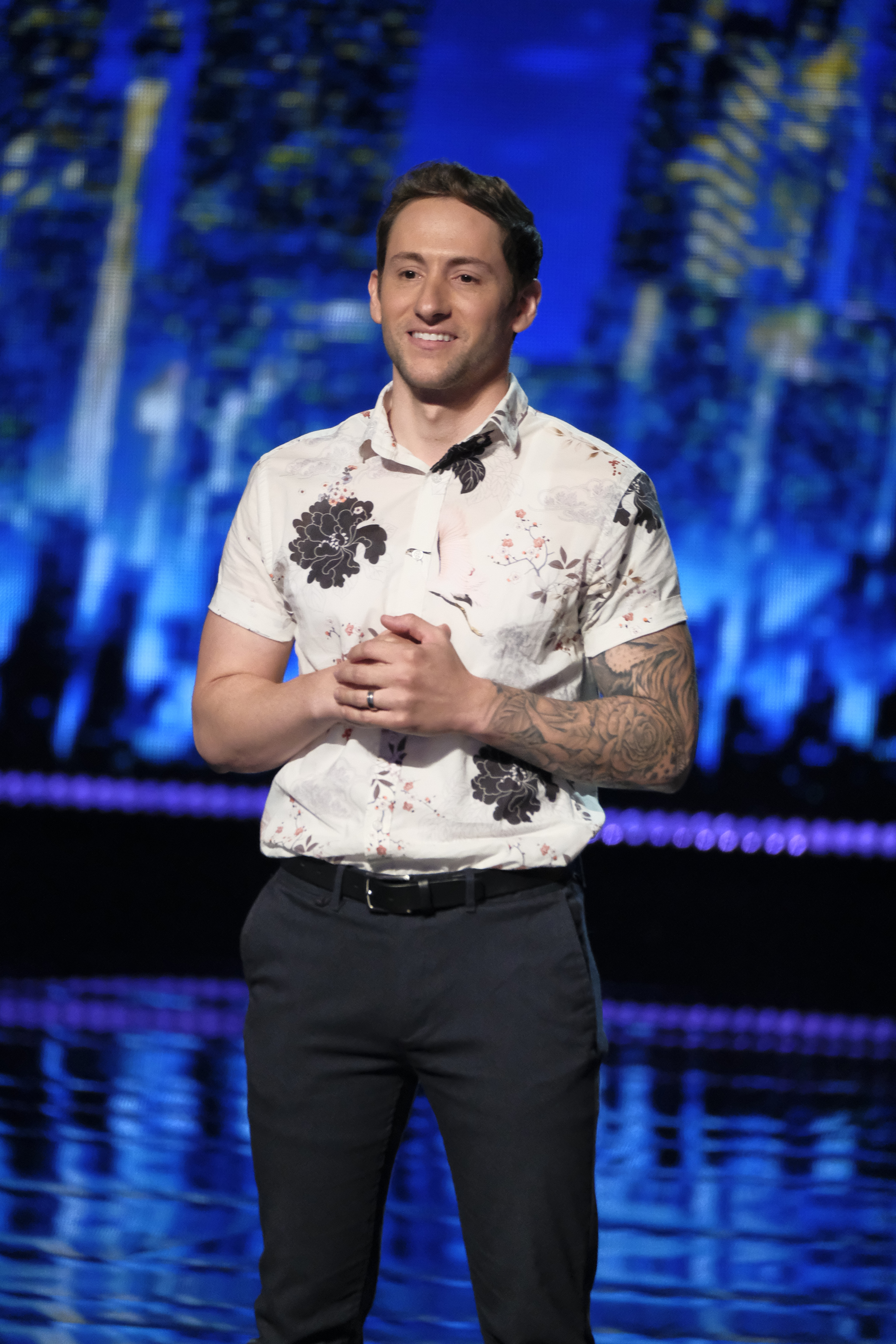
Comedian Samuel J. Comroe performs on “America’s Got Talent” on Sept. 5, 2018. (Photo by Trae Patton, NBC)
-
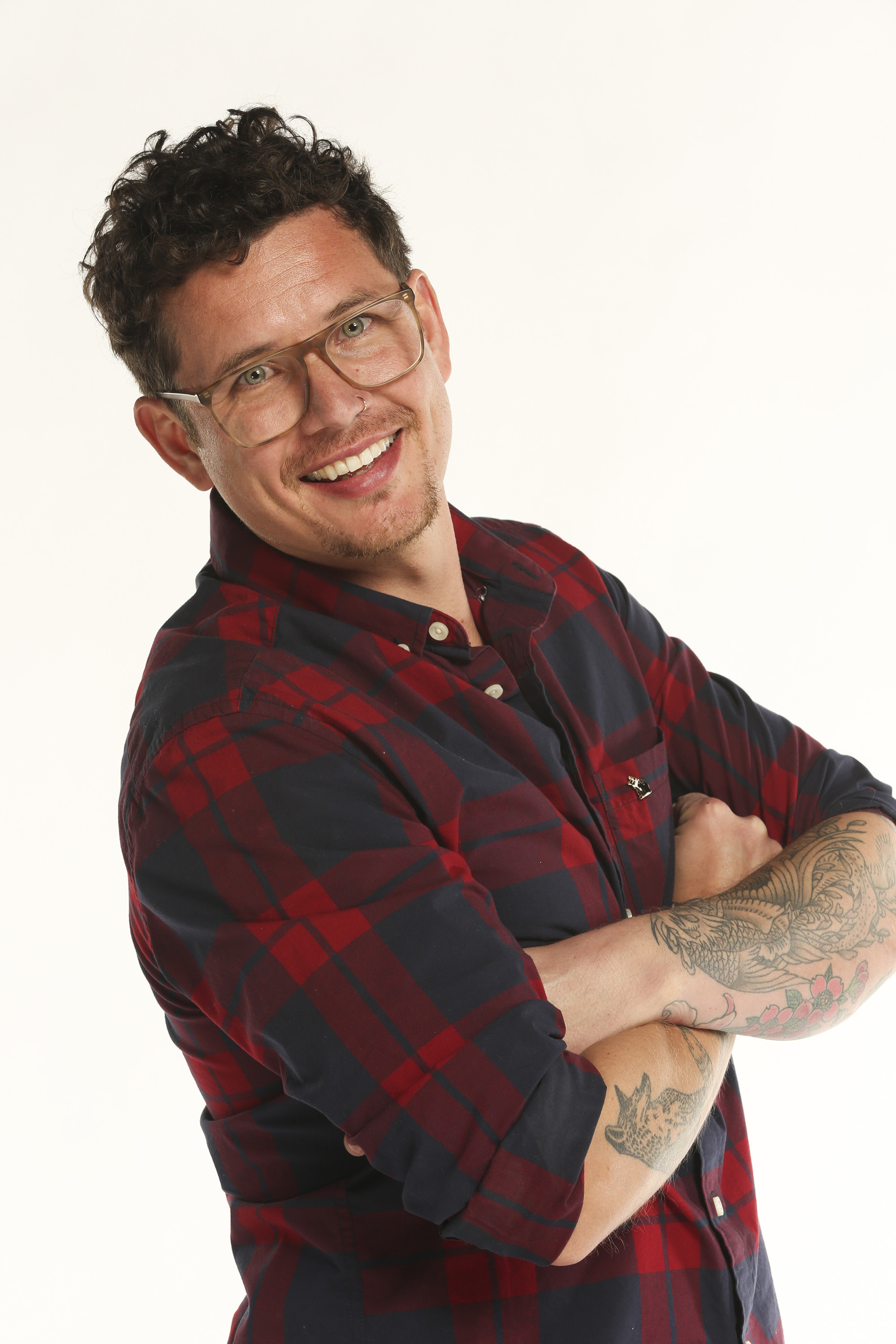
Michael Ketterer, a singer from Fountain Valley, is in the finals of “America’s Got Talent.” (Photo by Vivian Zink, NBC)
-
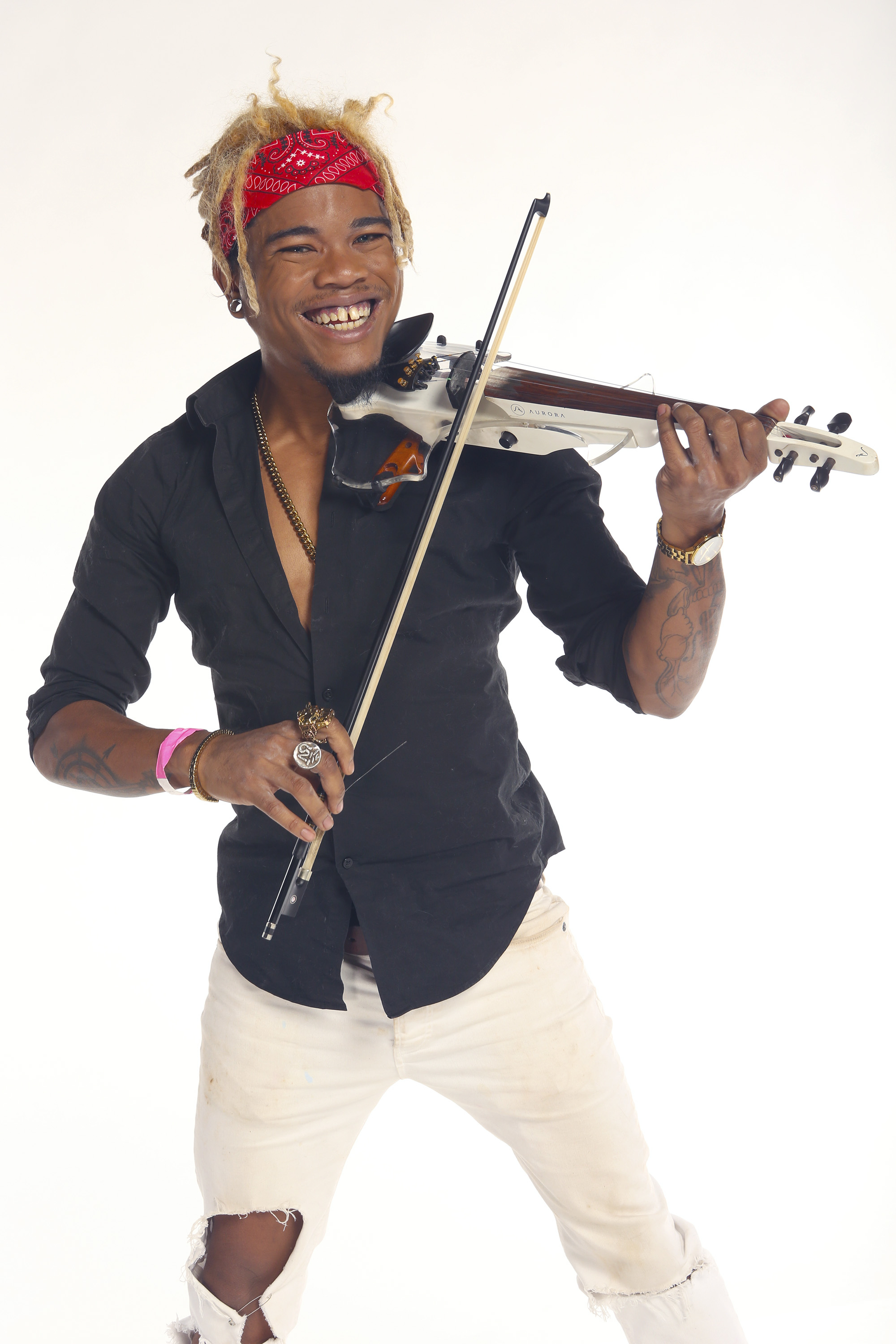
Brian King Joseph, a violinist from Los Angeles, is in the finals of “America’s Got Talent.” (Photo by Vivian Zink, NBC)
-
-

Samuel J. Comroe, a comedian from Canoga Park, is in the finals of “America’s Got Talent.” (Photo by Vivian Zink, NBC)
-
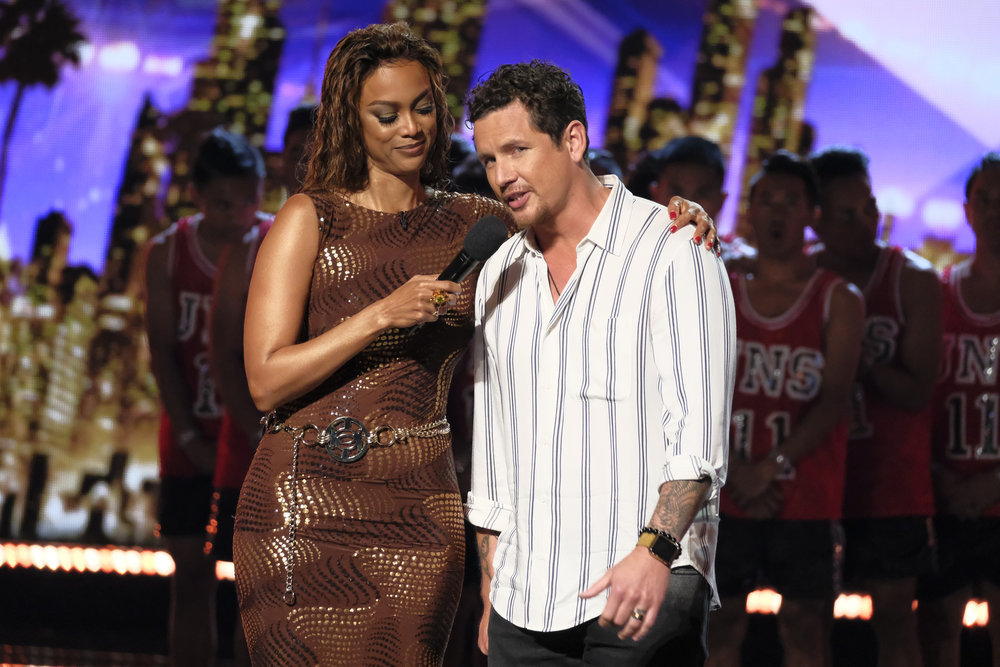
Singer Michael Ketterer of Fountain Valley gets good news from host Tyra Banks on “America’s Got Talent” in the semi-finals on Sept. 5 2018. (Photo by Trae Patton, NBC)
-

Violinist Brian King Joseph gets good news from host Tyra Banks on “America’s Got Talent” in the semi-finals on Sept. 11, 2018. (Photo by Trae Patton, NBC)
-
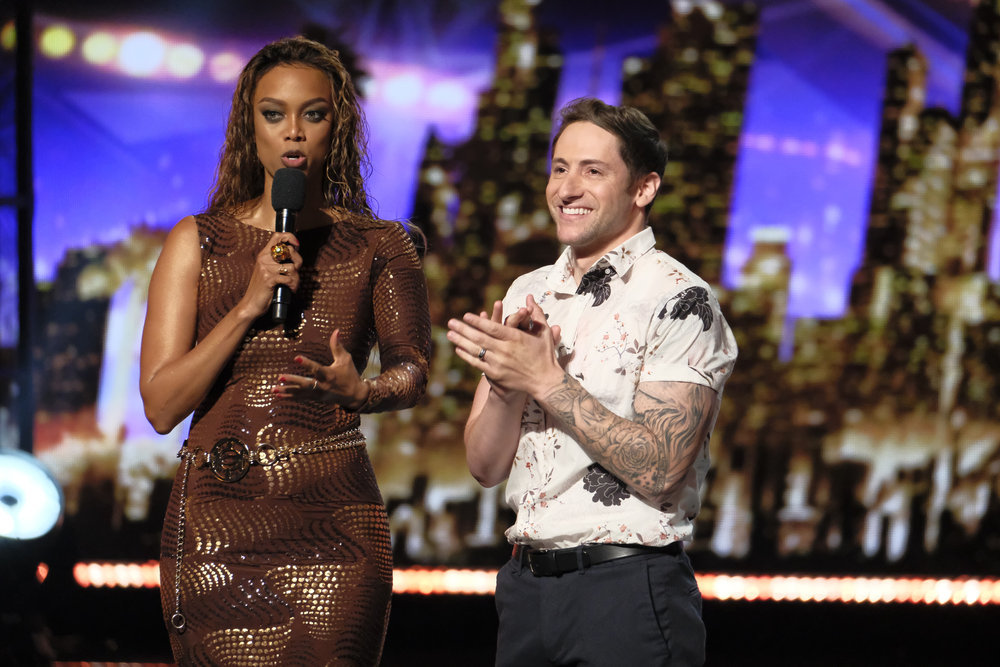
Comedian Samuel J. Comroe gets good news from host Tyra Banks on “America’s Got Talent” on Sept. 5, 2018. Photo by Trae Patton, NBC)
Expand
There was always something else to do first, says singer Michael Ketterer of why he sidelined his dreams of music as his family grew to include six children. Then the idea he could teach his kids the power of pursuing one’s passion set him in motion.
The ticking clock of Brian King Joseph’s body launched the young electric violinist on the same path. As King’s debilitating nerve disease progresses, he says his ability to play music might one day end. It was now or possibly never.
Samuel J. Comroe says he was bullied as a boy for his Tourette’s Syndrome, but turned that to his advantage as a comic who talks about his twitchy life on stage. But comedy is a tough road and with an infant daughter at home he took a shot at a huge prize.
Ketterer, Joseph and Comroe went all in this year to try to win the $1 million prize on the reality talent series “America’s Got Talent.” Now they’re hours from the two-night finale on NBC on Tuesday and Wednesday so we rang ’em up to find out a little bit more about their journeys so far.
Michael Ketterer
Ketterer, 41, grew up singing in the churches of eastern Tennessee, where his father was a music minister. He started thinking about a professional music career as a young man, and pursued it in the worship genre because it was what he knew best, while also working as a nurse to support wife Ivey, their first child, Sophia, and eventually five foster sons the family adopted.
“With us, we’ve taken in all these extra little mouths to feed, and it’s a lot of work just to make the day to day go by,” says Ketterer, who works as a pediatric mental health nurse at Children’s Hospital of Orange County and as a worship leader at Influence Church in Anaheim.
“When ‘America’s Got Talent’ came around it was the last thing that was on my radar,” he says. “My wife basically gave me a kick in the butt and said, ‘You’ve got to get out there, you need to do this.’”
The show had always appealed to him as a viewer because the talent on display is usually paired with interesting or inspirational back stories for the contestants. As he told the judges during his audition, he’d fallen into the trap of thinking that “when you’re surviving you can’t dream,” and he wanted to change that narrative for his kids.
“I always want to teach my kids that the greatest thing they can do is show up and give their all, and go after the things they dream,” Ketterer says.
When he walked on stage to sing the Bee Gees’ “To Love Somebody” he looked scared. But when he started to sing, his emotional delivery and voice quickly impressed, prompting judge Simon Cowell to hit the golden buzzer that sends a contestant straight to the live shows.
If he wins the top prize Ketterer says one of the first things he’ll do is make his home more accessible to his 9-year-old son Rodrigo, or Rodee, who has cerebral palsy and uses a wheelchair. No matter what happens its been worth it.
“I feel like when I put my uniform on and go to with these kids (at CHOC) I really feel like I can impact lives,” he says. “I’ve learned that my music can have that impact too.”
Brian King Joseph
Joseph, 28, grew up in Washington D.C., picking up the violin when he was 4 and never setting it down. A few years ago, though, he learned that he had a nerve disease, his hands and feet going numb as the nerves in them died, he says.
Trying out for TV shows after moving to Los Angeles was a potentially last-ditch effort to get his name and music in front of a larger audience. After many rejections one night he got the call he’d hoped for.
“They said, ‘So we have one slot left tomorrow to perform in front of the judges, you want to come on down?’” Joseph says. “I was like, ‘Oh my god, it’s 10 o’clock the night before!’”
Of course he went, and wowed the judges with his big smile and dazzling performance of Major Lazer and DJ Snake’s “Lean On,” making it all look so much easier than it actually was given that he can no longer actually feel his fingers on the strings.
“I play from muscle memory,” Joseph says. “The nerves in my hands are mostly gone at this point. I have to do a constant second by second, millisecond by millisecond adjustment while I play. I’m constantly having to listen to myself and readjust my fingers.”
Walking on stage for that audition was the first time he’d been in a theater other than the one concert he’d ever seen in his life so far — tickets weren’t in his family’s budget — a Linkin Park show to which he won tickets in a radio contest. So he was nervous, Joseph says, to be backstage and see Tyra Banks and Mel B and Howie Mandel walking by, though once he started to perform he clicked into the safety of that familiar place inside himself.
If he were to win he’d use some of the prize money to cover his health care and hopefully find treatments to let him play as long as possible. He’d also start a charity to help other kids with needs like those he experienced growing up.
“I come from a life where people don’t expect you to do great things because of where you come from, what color your skin may be, or what kind of access you have to certain kinds of education,” Joseph says. “I want to create an opportunity for children to pursue what they love, to pursue their talents, and be bigger than they are, or bigger than what people are telling them they can be.”
Samuel J. Comroe
Comroe, 30, has done stand-up comedy since he was a 17-year-old student at Canoga Park High School and he decided, despite never having performed in public before, to ask his principal if he could do a comedy show once a month at school.
“I was lucky to have such a supportive principal,” he says. “He let a 17-year-old get up on stage and say whatever I wanted to say.”
It felt amazing, Comroe says, who had learned to love comedy through hanging out with his dad and watching comics on TV.
“I just realized how beautiful it was, just one person on stage along with a microphone,” he says of the appeal. “Talking about their lives, their struggles, and just sharing that.”
Comroe certainly had struggles. As a young child he’d been diagnosed with Tourette’s Syndrome, and the tics and twitches of that condition had long put an unwelcome spotlight on him at school and in other public places.
“When I first started stand-up I really tried not to talk about it too much,” he says. “I was determined not to be a Tourette’s comedian. I wanted to be a comedian who just happened to have Tourette’s. I didn’t want to be defined by it.”
Then a few fellow comedians in the clubs where he performed gave him some advice about being real with himself and the audience alike. “They said, ‘We realize you have Tourette’s, we can see you twitching on stage, the audience can see it,” Comroe says. “We really think you should talk about it.”
He went home, wrote some new material, came back and did a six-minute riff on life with Tourette’s in his next set. And people loved it. “That’s what people want,” Comroe says. “Someone up there being real and honest, being relatable.”
Already his life has changed thanks to the exposure of “America’s Got Talent.” His fan base has exploded and he’s got tour dates lined up through 2019, including a show at the Brea Improv in October and three nights in Ventura the following month.
“If you came to my show three months ago there might have been 20 people there,” he says. “Now you might be lucky to get a seat.
“Now that I have a little girl, everything I do is for her,” Comroe says. “To get to the finals, that’s for her.”